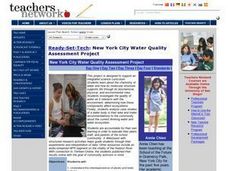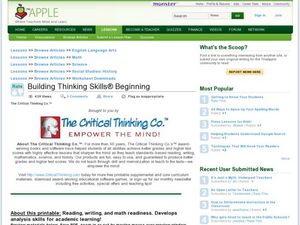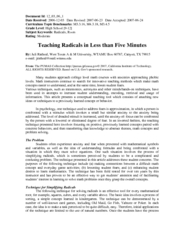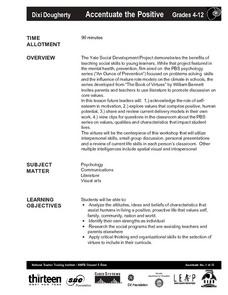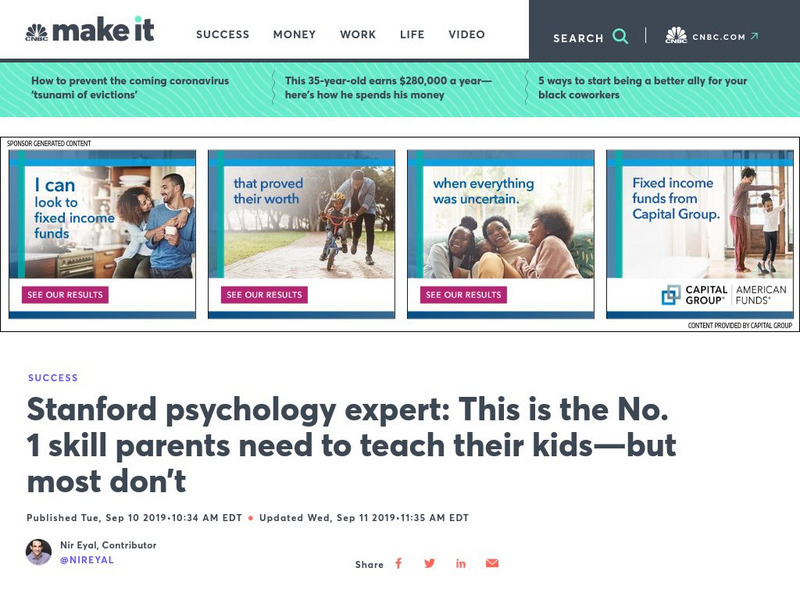Curated OER
Animal Movement
Students participate in a movement to music activity. In this awareness of movement lesson, students hear music and move like animals they hear described in the music. Students make disciplined movements and make sounds like animals.
Curated OER
Heaven or Ground Hog Day?
Learners discover the ideas of enlightenment by reading historical poetry. In this philosophical lesson, students read poems by Sir Walter Scott and Sergeant Joyce Kilmer while discussing the themes of the writing with classmates....
Curated OER
Japanese Inspired Activities for the Classroom
Students become more aware of cultural differences by reading a variety of multicultural books about social issues. They assess various Haiku's by Lee Bennett Hopkins, Kamishibai stories by Dianne Clouet and snapshots from Japan by Peter...
Curated OER
The Gentle Art of Persuasion: Techniques for Persuading Different Audiences
Students examine the use of persuasive arguments to varying audiences. They define persuasion, read and discuss an article on whether P.E. should be optional, summarize the pros and cons of P.E., and write a letter or a speech.
Curated OER
New York City Water Quality Assessment Project
Young scholars investigate the chemistry of water and how its molecular structure supports life through its biochemcial, physical, and environmental roles. They investigate the quality of water as it interacts with the environment. ...
Curated OER
Thinking Skills: Connecting shapes
In this thinking skills worksheet, students draw a line connecting each blue figure without touching any other color. Students connect 4 figures.
Curated OER
Initial Fraction Ideas Lesson 5: Overview
Students demonstrate fraction symbols. In this fractions lesson, students use paper strips to represent various fractions. Students then use fraction circles to compare various given fractions.
Curated OER
World Hunger
Students research the causes and effects of world hunger on children. In this world hunger instructional activity, students discuss causes and effects of hunger around the world and research a specific area affected by hunger. Students...
Curated OER
Confronting the -Isms
Students keep "Mindwatch" diaries to chart their own prejudices and stereotypes. In this social justice lesson, students monitor their own reactions to people who are different from themselves. Students identify and discuss patterns of...
Curated OER
Teaching Radicals in Less Than Five Minutes
Learners simplify complex radicals following a specific technique. In this math lesson, students simulate the process using several decks of cards. They explore real life applications of radicals.
Curated OER
Mathematics In You
Learners construct ratios using the hand as data. They use examples of cortical and trabecular bone found in the long bones to measure circumference, diameter, length, and weight of long bones. They perform computations using growth...
Curated OER
Accentuate the Positive
Students analyze the attitudes, ideas and beliefs of characteristics that
assist humans in living a positive, proactive life that values self,
family, community, nation and world. Students identify their own strengths as individual....
Curated OER
Anthropology and Sociology
Learners examine the combined subjects of anthropology and sociology and explain how the disciplines would study the same issue. On poster board, they locate or draw pictures related to the two subjects. Once this is completed, students...
Curated OER
Empathy and the Vietnam War
Students explore the implications of the draft during the Vietnam War. In this Vietnam lesson, students analyze the lyrics of songs that explore differents opinions of the Vietnam draft. Students particpate in a role-play activity that...
Curated OER
Colors of Gray
Students view a film about theatres in Chicago. They discover how performing arts can be enjoyed by all ages and how one becomes involved in performing in theatre. They answer questions and discuss to end the lesson.
PBS
Pbs Learning Media: Your Brain and Moral Decision Making
In this segment from Curious, scientists conduct an experiment to learn how different areas of the brain are stimulated when making moral decisions.
Other
Stanford Psychology Expert: The No. 1 Skill Parents Need to Teach Their Kids
This article discusses the importance of learning to be 'indistractable' and how most parents are not teaching this skill to their children. The author, an instructor at Stanford's Graduate School of Business, shares tips on how to help...
Other
Social Psychology Network: Jigsaw Classroom
The "official web site of the jigsaw classroom",- a cooperative learning technique which was developed by Elliot Aronson. The jigsaw approach is considered to promote better learning, improve student motivation, and increase enjoyment of...
Other
Simply Psychology: Saul Mc Leod: Nature vs. Nurture in Psychology
There are five approaches to psychology which are on a spectrum from nature versus nurture. The approaches with inherited traits lean towards the nature end and those with acquired traits are on the nurture end. This article helps...
Other
Psychology Today: Adolescence
Explore the journey from childhood towards adulthood from how to talk to teens to a look at mental health in high school. Learn about the many issues that accompany this coming of age.
Other
Verywell: What Is Nature Versus Nurture?
An article featuring the ongoing philosophical debate over psychology's nature versus nurture. Cherry clarifies the differences between the two schools of thought and provides the changes in theory over the years.






